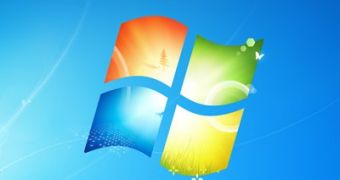In the second half of 2010 Microsoft’s client operating system will have a new rival platform hungry for a piece of its market share. The Linux-based Google Chrome OS will be generally available to customers worldwide in H2 2010, and it will fall not on Windows 7 RTM, but on Windows 7 Service Pack 1 to neutralize the new threat. However, so far Microsoft seems little worried about the upcoming Chrome OS from the Mountain View-based search giant; it seems poised to take netbooks by storm in approximately one year.
Microsoft General Manager Charles Songhurst revealed confidence in Windows 7’s quality and inherent ability to hold its ground against Chrome OS, via Beyond Binary. According to Songhurst, Google will have to do a lot more than simply offer a new, cheaper, Linux flavor, rebranded as Chrome OS. The GM pointed out that the only way that Chrome OS would represent a threat to Windows 7 was if it was sensibly better than the latest iteration of the Windows client.
The Windows 7 general availability deadline is set for October 22nd, 2009. Microsoft traditionally takes approximately one year to develop the first service pack for a Windows client release. In this context, by the end of 2010, early 2011 at the latest, the Redmond company will have already offered end users SP1 for Windows 7. Complete with SP1, Windows 7 will have a number of advantages over Chrome OS, including the maturity of the platform, client-side software support and hardware compatibility. In fact, even if the battle is “raged” on netbooks, Chrome OS is bound to do little more than establish a beach head on Windows territory.
Microsoft itself is also negotiating with original equipment manufacturers to preload Windows 7 on netbooks and additional new machines. According to the Redmond company, on average, for each OEM copy of Windows sold, it receives approximately $50. Microsoft is not saying just how much it is currently charging OEMs for the copies of Windows XP that are pre-installed on netbooks, with speculation indicating a figure considerably smaller than $50, namely about $15. Such a low sum for each copy of Windows on netbooks indeed makes the advantage of a free Chrome OS irrelevant.

 14 DAY TRIAL //
14 DAY TRIAL //